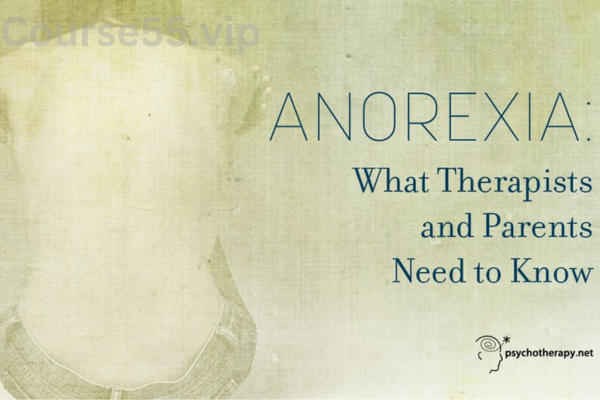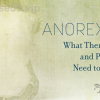-
×
 What to Do in the First 90 Days of Your New Job
1 × $23.10
What to Do in the First 90 Days of Your New Job
1 × $23.10 -
×
 Transgender & Gender Non-Binary (TGNB) Clients: Clinical Issues and Treatment Strategies By lore m dickey - PESI
1 × $23.10
Transgender & Gender Non-Binary (TGNB) Clients: Clinical Issues and Treatment Strategies By lore m dickey - PESI
1 × $23.10 -
×
 Ethics & Cultural Competency: 1-Day Intensive Certificate By Frances Patterson - PESI
1 × $23.10
Ethics & Cultural Competency: 1-Day Intensive Certificate By Frances Patterson - PESI
1 × $23.10 -
×
 Fast Track 6 Figure Formula By Ray Higdon & Mark Hoverson
1 × $23.10
Fast Track 6 Figure Formula By Ray Higdon & Mark Hoverson
1 × $23.10 -
×
 Outbursts, Oppositional Defiance and Frustration in the Classroom: Self-Regulation Techniques to Reduce the Frequency, Severity and Duration of Problematic Behavior By Laura Ehlert - PESI
1 × $23.10
Outbursts, Oppositional Defiance and Frustration in the Classroom: Self-Regulation Techniques to Reduce the Frequency, Severity and Duration of Problematic Behavior By Laura Ehlert - PESI
1 × $23.10 -
×
 New Rules for Treating Trauma: Integrating Neuroscience for Resilience, Connection and Post-Traumatic Growth By Courtney Armstrong - PESI
1 × $23.10
New Rules for Treating Trauma: Integrating Neuroscience for Resilience, Connection and Post-Traumatic Growth By Courtney Armstrong - PESI
1 × $23.10 -
×
 The Whole Journey Candida Cleanse by Christa Orecchio
1 × $15.40
The Whole Journey Candida Cleanse by Christa Orecchio
1 × $15.40 -
×
 SEO Operating System By James Ewen
1 × $15.00
SEO Operating System By James Ewen
1 × $15.00 -
×
 Self-Regulation & Executive Functioning in Children and Adolescents: Visual Strategies and Hands-on Techniques to Provide Structure, Predictability, and Routines By Kathy Morris
1 × $23.10
Self-Regulation & Executive Functioning in Children and Adolescents: Visual Strategies and Hands-on Techniques to Provide Structure, Predictability, and Routines By Kathy Morris
1 × $23.10 -
×
 Utah Legal and Ethical Issues for Mental Health Clinicians By Susan Lewis - PESI
1 × $23.10
Utah Legal and Ethical Issues for Mental Health Clinicians By Susan Lewis - PESI
1 × $23.10 -
×
 Couples on the Brink: When Is Enough Enough? By Terry Real - PESI
1 × $23.10
Couples on the Brink: When Is Enough Enough? By Terry Real - PESI
1 × $23.10 -
×
 Trauma-Informed Yoga for Children and Adolescents: Mind-Body Sequencing for ADHD, Anxiety and Post-Traumatic Stress By Kathy Flaminio
1 × $23.10
Trauma-Informed Yoga for Children and Adolescents: Mind-Body Sequencing for ADHD, Anxiety and Post-Traumatic Stress By Kathy Flaminio
1 × $23.10 -
×
 Acceptance and Commitment Therapy (ACT) Made Easy: Innovative Techniques for Depression, Anxiety, Trauma & Personality Disorders By Douglas Fogel - PESI
1 × $23.10
Acceptance and Commitment Therapy (ACT) Made Easy: Innovative Techniques for Depression, Anxiety, Trauma & Personality Disorders By Douglas Fogel - PESI
1 × $23.10
Anorexia – What Therapists and Parents Need to Know With Lisa Sabey and Robert Blair
$29.00 Original price was: $29.00.$7.70Current price is: $7.70.
SKU: C55vip.462671cfm2hTd
Category: Download
Tags: Anorexia, Lisa Sabey and Robert Blair, What Therapists and Parents Need to Know
Anorexia: What Therapists and Parents Need to Know – Digital Download!

Anorexia – What Therapists and Parents Need to Know With Lisa Sabey and Robert Blair
Overview

Anorexia Unveiled: Essential Insights for Therapists and Families
Among the many challenges in mental health, anorexia nervosa stands as one of the most daunting. In the video “Anorexia: What Therapists and Parents Need to Know,” Lisa Sabey and Robert Blair unravel the complicated layers of this condition, especially highlighting family involvement and therapy strategies. This video is not just a general discussion; it is a vital support system for parents overwhelmed by confusion and despair as they explore the maze of treatment possibilities. Far from a simple concern with food, anorexia is a severe and chronic illness, ranking third among adolescents’ chronic conditions in the U.S., and carrying one of the highest mortality rates in the mental health field. Grasping its multifaceted nature, the emotional impact on families, and how to intervene effectively is critical for steering recovery efforts successfully.
Diving Deeper into Anorexia Nervosa
Clarifying the Condition
Anorexia nervosa stretches far beyond disordered eating; it embodies a complex psychological struggle centered on a profound fear of weight gain and an obsessive fixation with body image. This mental storm steals happiness, vitality, and often severes family bonds for countless teenagers. Unlike temporary diets or trends, anorexia’s effects are long-lasting, leaving both psychological and physical scars that can endure for life.
The Emotional Ripple Effect on Families
Parents witnessing their child’s fight against anorexia often endure an emotional storm of their own, desperately trying to aid their child while feeling utterly powerless. It can resemble watching someone drown in rough seas, unable to pull them to safety. Parents may internalize guilt, wondering if their actions help or harm, and whether they are inadvertently anchoring their child’s suffering rather than rescuing them.
Numbers That Speak Volumes
The statistics about anorexia nervosa reveal a sobering reality:
-
It is the third most prevalent chronic illness among teens in America.
-
It carries the highest mortality rate among psychiatric disorders.
-
Over 30% of those affected do not achieve full recovery, underscoring the urgent need for early and effective treatment.
Recognizing these numbers is crucial for both therapists and parents, highlighting just how high the stakes are when confronting this illness.
Family-Based Treatment: A Cornerstone of Recovery
Exploring Family-Based Treatment
Family-Based Treatment (FBT), also referred to as the Maudsley Method, offers a powerful beacon for adolescents grappling with anorexia. Unlike older models that may blame families, FBT invites parents to be active participants in their child’s recovery journey, reinforcing the idea that healing is a team effort within the family unit.
Stages of Family-Based Treatment
FBT is structured around three key stages, each targeting a different part of the healing path:
-
Refeeding Phase: The initial stage focuses on restoring the adolescent’s weight, with parents guiding nutritional rehabilitation despite possible emotional hurdles.
-
Restoring Healthy Eating Behaviors: Once physical recovery begins, families work together to rebuild normal attitudes toward food and confront unhealthy beliefs.
-
Supporting Independence: The final phase promotes the teenager’s autonomy, encouraging them to make healthy food decisions on their own as they continue toward full recovery.
FBT’s Tangible Results
The testimonies highlighted in the video echo a shared sentiment — real change is possible when families are front and center in treatment. Parents’ emotional battles and victories illustrate that their active involvement is not just beneficial but essential for sustained progress.
Stories of Strength: Personal Accounts in the Fight Against Anorexia
Lisa Sabey’s Powerful Advocacy
Lisa Sabey’s experience shines as a touching and relatable journey. Fighting for her daughter’s well-being, she encountered a healthcare system that often overlooked the pivotal role parents play. Sabey’s story reflects the determination many families must summon, emphasizing how informed and empowered parents can profoundly shape outcomes for their children.
Lighting the Way for Other Families
Through her advocacy, Lisa offers hope and guidance to other parents navigating similar battles. Her work underscores the importance of family voices in the recovery process and demonstrates that with persistence and education, families can steer through the complexity of treatment decisions and demand the support their children deserve.
Integrating Families into Therapeutic Healing
The Critical Role of Family Engagement
Emerging research continues to validate that involving the family unit in therapy significantly improves outcomes for adolescents battling anorexia. Highlights include:
-
Adolescents supported by family-centered treatments show higher rates of recovery.
-
Family involvement correlates with fewer hospital admissions and stronger long-term results.
-
Including parents and siblings in the therapeutic process fosters better communication, reduces isolation, and provides a more supportive recovery environment.
This collaborative model not only accelerates healing but also softens the emotional blows for everyone touched by the disorder.
Closing Reflections
“Anorexia: What Therapists and Parents Need to Know” stands as a crucial resource for both clinicians and families, blending professional expertise with heartfelt stories from parents. Combating anorexia requires a united front, where therapists and families walk side-by-side against a shared enemy. By embracing emotional realities and prioritizing family participation in therapy, we can pave a hopeful road to recovery. The unwavering dedication of advocates like Lisa Sabey proves that hope is not just a distant glimmer — it is a reachable reality when families and professionals come together to fight.
Frequently Asked Questions:
Business Model Innovation: We operate a group buying strategy, allowing participants to share costs and access popular courses at reduced prices. This model benefits individuals with limited financial resources, despite concerns from content creators about distribution methods.
Legal Considerations: The legality of our operations involves complex issues. Although we don’t have explicit permission from course creators to resell their content, there are no specific resale restrictions stated at the time of purchase. This ambiguity creates an opportunity for us to provide affordable educational resources.
Quality Control: We ensure that all course materials purchased are identical to those offered directly by the creators. However, it’s important to understand that we are not official providers. As such, our offerings do not include:
– Live coaching calls or sessions with the course author.
– Access to exclusive author-controlled groups or portals.
– Membership in private forums.
– Direct email support from the author or their team.
We aim to reduce the cost barrier in education by offering these courses independently, without the premium services available through official channels. We appreciate your understanding of our unique approach.
Be the first to review “Anorexia – What Therapists and Parents Need to Know With Lisa Sabey and Robert Blair” Cancel reply
You must be logged in to post a review.












Reviews
There are no reviews yet.